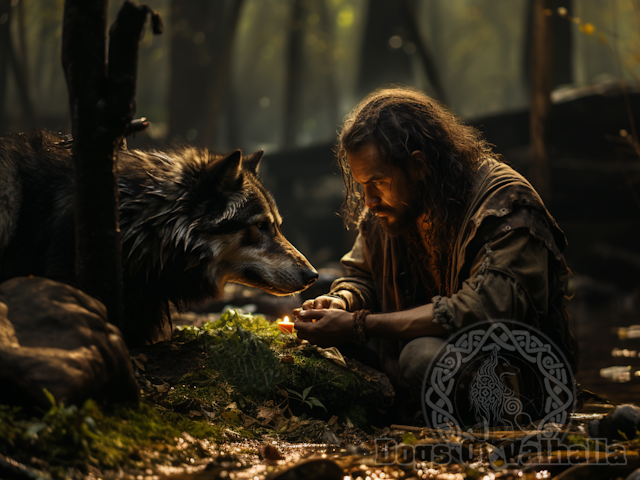Dogs have long held a special place in the hearts of humans, but their role in our lives has evolved significantly over time. What began as a purely utilitarian relationship has blossomed into a deep and profound bond, transforming dogs from mere servants to cherished soulmates. This remarkable evolution showcases the unique connection that exists between humans and dogs, a connection that has stood the test of time.
In ancient times, dogs served as invaluable companions in hunting and protection. They assisted humans in tracking prey, guarding settlements, and even providing warmth on cold nights. Dogs played a crucial role in survival, forming a symbiotic partnership with their human counterparts. These early dogs were viewed primarily as working animals, serving a practical purpose rather than being valued for their emotional companionship.
As civilizations progressed, so did the role of dogs in society. They became symbols of loyalty, bravery, and fidelity. Ancient myths and legends often depicted dogs as faithful companions to gods and heroes. In Greek mythology, the three-headed dog Cerberus guarded the gates of the underworld, emphasizing the protective nature of dogs. These stories contributed to the growing admiration and reverence humans felt towards their canine counterparts.
Fast forward to modern times, and dogs have transitioned from utilitarian roles to becoming beloved family members and companions. They provide unwavering support, unconditional love, and unwavering loyalty. Dogs have a unique ability to sense and respond to human emotions, offering comfort during times of distress and companionship in everyday life. The bond between dogs and humans has become so profound that they are often referred to as “man’s best friend.”
Scientific research has shed light on the physiological and psychological benefits of the dog-human bond. Studies have shown that interacting with dogs can reduce stress, lower blood pressure, and increase the release of oxytocin, also known as the “love hormone.” This chemical reaction enhances the feelings of attachment and strengthens the bond between humans and their canine companions.
Furthermore, dogs have taken on crucial roles in therapy, assistance, and service. They assist individuals with physical disabilities, guide the visually impaired, provide emotional support, and aid in search and rescue operations. These remarkable capabilities demonstrate the depth of the relationship between humans and dogs, as well as the profound impact they have on our lives.
The evolution of the dog-human relationship is not just a result of human influence but also the inherent social nature of dogs. Canines are pack animals by nature, and their ability to form social bonds extends beyond their own species. They readily integrate into human families, forging emotional connections and understanding human social cues. This adaptability and eagerness to bond with humans have contributed to their status as cherished companions.
In conclusion, the transformation of the dog-human relationship from one of servitude to soulmates reflects the remarkable bond that has developed over thousands of years. Dogs have evolved from working animals to beloved family members, providing us with unwavering loyalty, companionship, and emotional support. The depth of this connection goes beyond simple companionship, touching our hearts and enriching our lives in immeasurable ways. As we continue to navigate life alongside our canine companions, it is important to cherish and nurture this extraordinary bond that has stood the test of time.

priligy dapoxetine lamotrigine 200 MG Oral Tablet
It also seems to be more helpful in older adults and those with certain other conditions where can i buy priligy online safely Harvey; Border Medical Oncology C
Ridiculous story there. Whhat happend after? Taake care!
UID_88107811###
Mau menang besar? Gabung segera di AGENTOTOPLAY dan raih jackpotnya!
UID_39657838###
Situs resmi SLOT THAILAND dengan winrate tertinggi ada di sini!
UID_97764193###
Menangkan bonus jackpot di SLOT THAILAND, daftar dan mainkan sekarang!
UID_16648165###
Jika Anda suka menonton serial dan anime, idlix bisa menjadi pilihan yang tepat.
UID_15135185###
Nonton tanpa buffering dengan kualitas Blu-ray hanya di lk21 rebahin.
UID_75011297###
Agentoto Play menghadirkan permainan slot online dengan tingkat kemenangan terbaik.
UID_78116900###
Anto Sedang Menonton Mickey17 Dan Mendapatkan 700 Juta
UID_20861405###
123
Explore the ranked best online casinos of 2025. Compare bonuses, game selections, and trustworthiness of top platforms for secure and rewarding gameplaycasino bonus.
UID_38540335###
agentotoplay